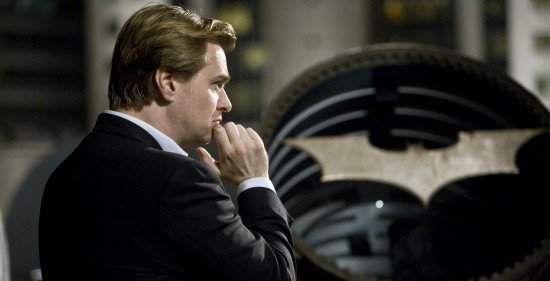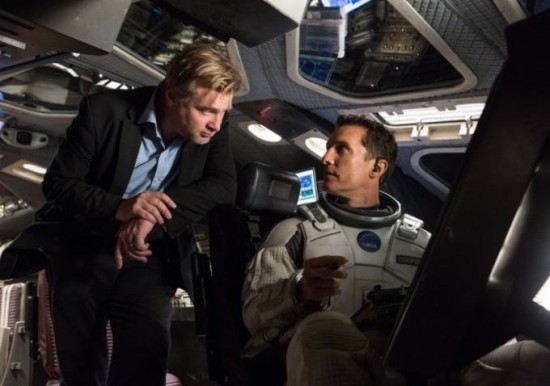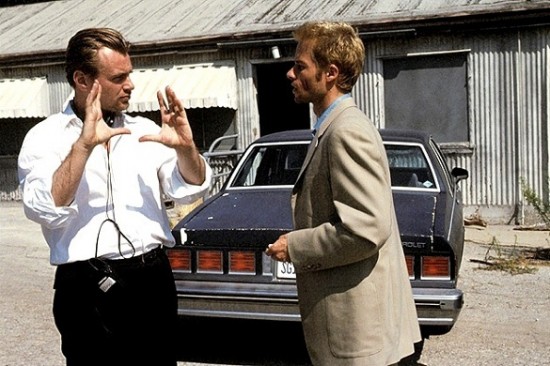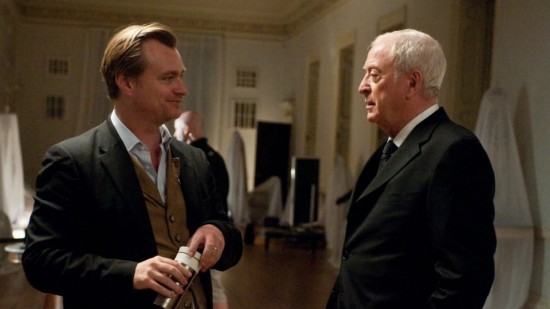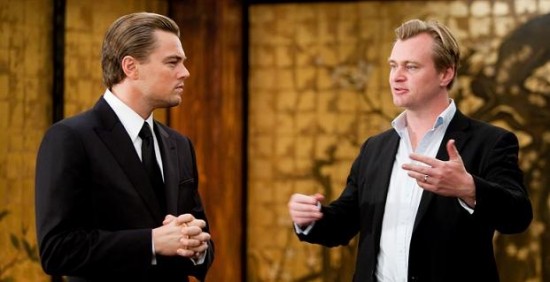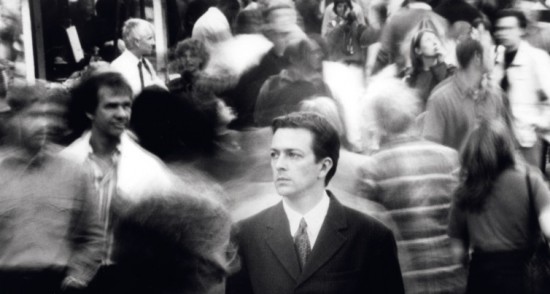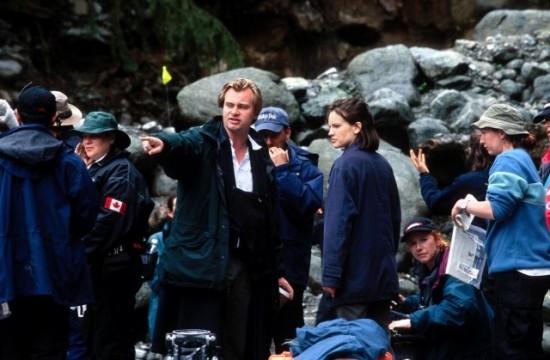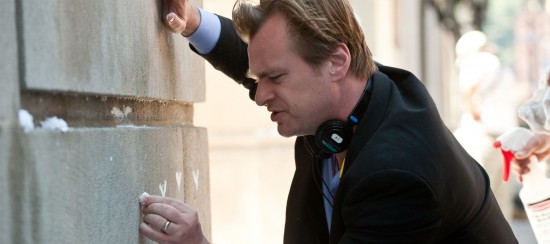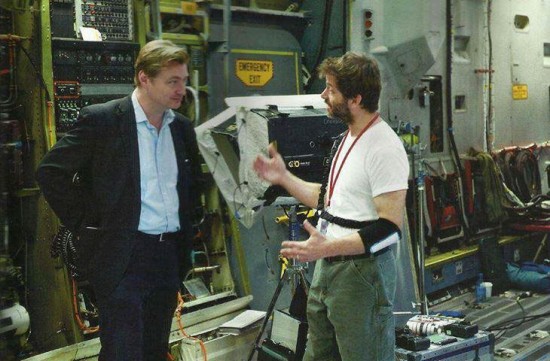15 Things We Learned About Christopher Nolan
This week a couple of good profiles have been published on Christopher Nolan in advance of his film Interstellar hitting theaters next week. The two main articles come from the New York Times and the Wall Street Journal, and I recommend checking out both pieces. Together, the profiles feature a great deal of interesting information on the filmmaker and his latest film which I thought might be of interest. I have collected 15 of most interesting tidbits for you after the jump.
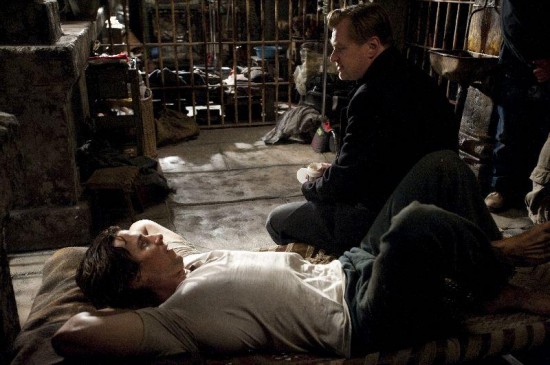 Christopher Nolan makes as much as the biggest filmmakers and actors in Hollywood: He was supposedly paid "the greater of more than $10 million or more than 10% of revenue, minus certain deductions" for Interstellar. So if the film ends up making $600 million worldwide, he could earn something in the $60 million range just for release.Vanity Fair magazine reported that Nolan made $69 million for Inception from back-end for writing, producing, and directing, based on a worldwide gross of $823 million and share of DVD and pay-TV revenue.
Christopher Nolan makes as much as the biggest filmmakers and actors in Hollywood: He was supposedly paid "the greater of more than $10 million or more than 10% of revenue, minus certain deductions" for Interstellar. So if the film ends up making $600 million worldwide, he could earn something in the $60 million range just for release.Vanity Fair magazine reported that Nolan made $69 million for Inception from back-end for writing, producing, and directing, based on a worldwide gross of $823 million and share of DVD and pay-TV revenue.
The United States Bureau of Labor Statistics claims the average film director earns an average of $92,220 per year. The bottom 10 percent earns an average of $32,010 annually while the top 10 percent earns in excess of $187,199 per year.
Producers and filmmakers typically receive "overhead" deals only in exchange for giving a movie studio the first option for any projects, but Nolan has a deal where the studio pays for all his development expenses and asks nothing in return. Warner Bros pays for Christopher Nolan's office suite, assistants, and other expenses without any obligation in return. Of course, Nolan has decided to make Warner Bros the home of the majority of his films.
Paramount Pictures CEO/Chairman Brad Grey claims that the set of Interstellar was the best-dressed film set he ever visited: "Everyone was in suits and ties, and I thought, Who are these folks, everyone talking very nicely to each other, all civilized?"
Sam Raimi also wears a suit while directing, but he does so as an homage to Alfred Hitchcock, as a method of showing authority in the position and as a show of respect to the art of filmmaking.
Christopher Nolan wears suits for an entirely different reason: he decided a long time ago that "it was a waste of energy to choose anew what to wear each day" so he decided upon a uniform that "splits the difference between the demands of an executive suite and a tundra."
Christopher Nolan's love for film began when at 7-years-old his father, a British advertising copywriter, took him to see the initial release of Star Wars and a theatrical rerelease of 2001. He began making Super 8 movies with his father's camera later that year.
Nolan always has a flask of tea in his pocket. Michael Caine told the NYT:
"He always has a flask of tea in his pocket. No matter how hot it is, he has a big overcoat with a pocket big enough for his tea, and he quietly sips it. At a certain point, I thought, There must be something better than tea in there. I asked him, 'You've not got vodka in there, have you?' He said no, just tea."
We even found photo evidence of this claim above.
In preparation for each film, Nolan spends a week or two "bashing out a little précis, on the same typewriter his father gave him when he was 21." (It appears as a prop in Following.) The précis is to "represent the feeling he wants to elicit, the texture of the fable. He keeps it in a file and returns to it from time to time to make sure he hasn't lost touch with his original idea."
His first film, Following, was shot on a tiny budget of only $6,000 shooting around 15 minutes of footage each Saturday over the course of a year.
Nolan was interested in making the Insomnia remake but couldn't get a meeting at Warner Bros. His agent called Steven Soderbergh, who had been an early fan of Memento. He "walked across the lot and said to the head of production, 'You're insane if you don't meet with this guy.'" Soderbergh has an executive producer credit on the film, alongside George Clooney.
Nolan writes his scripts to fit the production methods he'll use. His films are very close to what was originally pitched to his backers, and are delivered ahead of schedule and under budget. Paramount and Warner Bros were prepared to spend close to $200 million to make Insterstellar but "Nolan responded that he didn't need that much money, despite the picture's extensive use of digital and physical effects to create robots, dust storms, and mile-high waves."
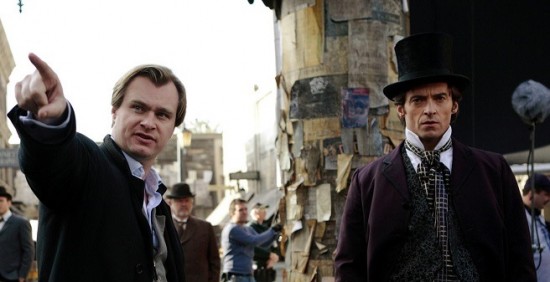
Nolan does not like anything leaked, even when he's addressing something most of the audience found to be a big issue. According to WSJ, Nolan called for an emergency meeting just after the holidays ended in 2012 and demanded that Warner Bros executives "find and punish the person who had talked" to a news site about his plans to alter the sound mix on The Dark Knight Rises after audiences couldn't understand Tom Hardy's Bane performance in the IMAX opening screen preview.
The executives, who had already traded frantic phone calls while the studio was closed between Christmas and New Year's, concluded it would be impossible to find the source. It took weeks until the issue was resolved with Mr. Nolan and his wife and producing partner, Emma Thomas, recalled the knowledgeable people.
Wow, I wonder how he reacted when the ending twists of The Dark Knight Rises was leaked online during production of the threequel.
Continue Reading 15 Things We Learned About Christopher Nolan >>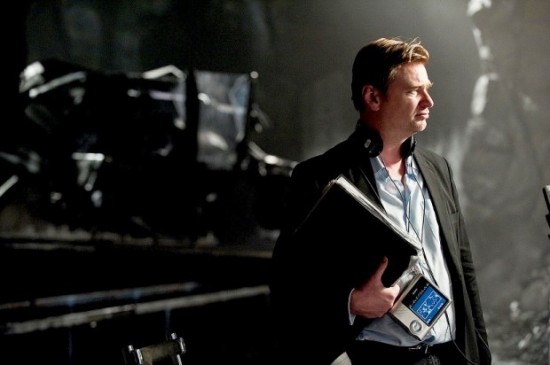
Nolan claims not to have an email address or a cell phone, although his wife / producer seems to relay information to him verbally or through printed out e-mails. A lot of things go through Emma: "She speaks for him much more than he speaks for himself," said one longtime associate.
The filmmaker prefers to work on location rather than on a studio sound stage, inspired by "the claustrophobia, the restrictions involved in trying to make your story work in a real location, versus the anything-goes mentality on sets."
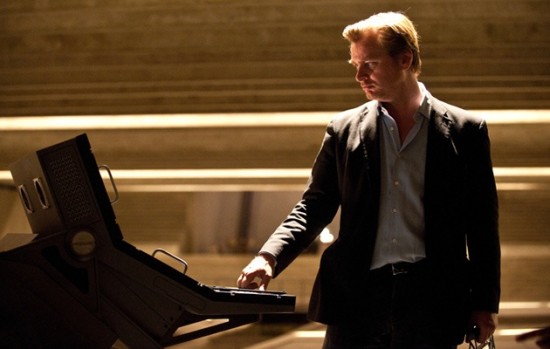 Interstellar doesn't have a lot of surround in the mix, because Nolan didn't want a lot of distraction from the sides.
Interstellar doesn't have a lot of surround in the mix, because Nolan didn't want a lot of distraction from the sides.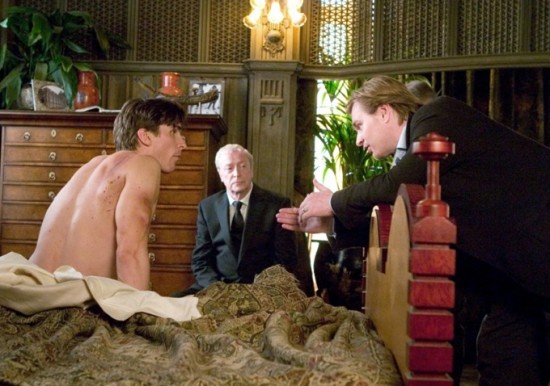
Nolan is so secretive about his scripts that he wouldn't even leave the screenplay for Batman Begins with Michael Caine. Caine told him, "I'll read it and have my driver bring it over tomorrow." But Nolan insisted on staying and had a cup of tea with Caine's wife while he read it." Caine told Nolan he wanted the part, and the filmmaker still took the script away: "I never saw it again," joked Caine.
Again, I highly recommend reading both the New York Times and Wall Street Journal profiles on the filmmaker which contain a lot more subtle details about him and his new film Interstellar.

